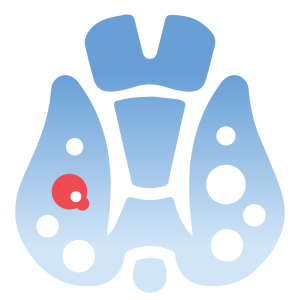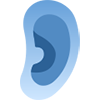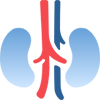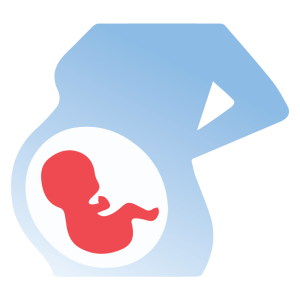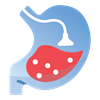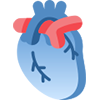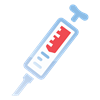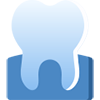1. When to cure VA?
VA is a good organization for the body to fight pathogens, but if the inflammation keeps coming back many times, it will cause complications near and far for the child such as:
Hypertrophy of the VA makes the child have to breathe with mouth, snoring, nasal congestion, sleep apnea… Affects the oxygen supply to the body, especially to the brain, adversely affecting the physical and intellectual development of children.
Enlarged VA affects a child’s sense of smell. Enlarged VA can cause blockage of the eustachian tube, causing middle ear infections, hearing loss and affecting the language ability of children. Hypertrophic VA causes blockage and accumulation of mucus in the sinuses, causing sinusitis.
VA curettage is a surgical intervention, used to remove the lymphatic tissue on the nasopharynx. Not all cases of VA requires curettage, this procedure is usually indicated when:
Chronic VA, relapsing many times, about 5 times/year.
– Enlarged VA poses a risk of airway obstruction, snoring, and even sleep apnea.
– VA can not be cured by medical treatment, causing complications of otitis media, bronchitis, sinusitis, laryngitis, etc.
– The enlarged VA makes the patient’s nose stuffy, difficult to swallow, affecting communication and daily activities.
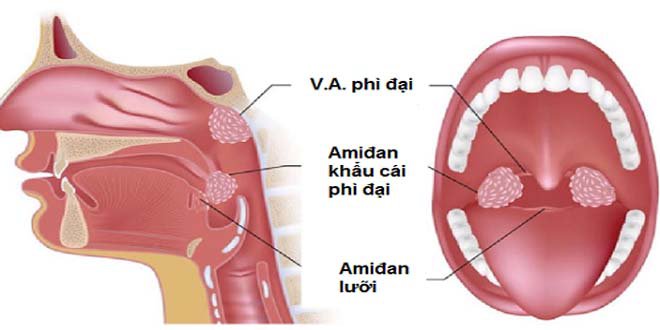
2. What to pay attention to in the process before-during-after surgery
2.1 Before surgery
In order to perform the surgery successfully and safely for the child, parents need to follow the following principles:
Within 7-10 days before the surgery, do not arbitrarily give the child anti-inflammatory drugs such as: ibuprofen, Indomethacin and naproxen. 10 days before surgery inform the doctor of any medicines the child is taking. Have a thermometer and fever reducer ready at home for the postoperative period.
Reassure the child not to worry before surgery. Follow the diet for babies before surgery:
- For children under 12 months old: Babies can use formula 6 hours before surgery. Babies can be breastfed 4 hours before surgery.
- For children over 12 months old: Children are not allowed to eat anything since 0:00 on the day of surgery, especially solid foods, candies, clear liquids such as milk, juice…
- For Children of all ages: Can drink water about 2 hours before surgery. If the child has to take regular medication as prescribed by the doctor, give the child the medicine with a little water on the morning of the surgery.
2.2 In surgery
The surgery takes 30 – 60 minutes. The child was anesthetized through a mask, then intubated and carefully monitored throughout the surgery.
The tonsils and VA are removed through the mouth so there will be no incisions in the face or neck. Immediately after the coma is over, the child may have different reactions such as: crying, frantic or confused, upset stomach or vomiting, possibly vomiting thick brown fluid if the child has swallowed a small amount of liquid. less blood during and after surgery.
These reactions are completely normal and should go away when the anesthetic wears off completely. When the child is fully awake, he can help him go to the toilet. Children are usually discharged from the hospital in 1-2 hours.
2.3 After surgery
A curettage rarely causes pain or difficulty swallowing, and children can return to school 1 to 3 days after curettage.
Some symptoms may appear after VA surgery and how to overcome:
Children feel vomiting and nausea: due to the influence of anesthesia, parents can give children liquid foods or other foods. Remove water as soon as possible, if vomiting is no longer possible, give the child solid food. Give your child plenty of water to drink to avoid dehydration after surgery.
- Wound healing: This process takes about 10 days, be careful not to get infected during this process.
- Pain: Children with VA feel pain or stiffness in the neck due to the lying position during surgery, can warm the child or use pain reliever (Paracetamol). Take care not to give the medicine to the child on an empty stomach because it may increase the risk of nausea or vomiting after surgery.
- Snoring: there are some children who snore after surgery, this condition is caused by edema in the surgical area and will go away after a few days.
- Voice change: There may be a change in the voice due to temporary changes in the size and shape of the oral cavity after surgery. This condition can persist for a few weeks to a few months and then return to normal.
- Fever: Children may have a mild or moderate fever, if the fever is below 38.5 degrees Celsius, it is not a cause for concern and does not need medication, the fever will go away on its own. If a fever over 39 degrees Celsius does not respond to paracetamol parents need to contact a doctor.
- Bad breath: Due to the healing process at the surgical site, this is nothing to worry about and will go away on its own after a few weeks. Maintain proper oral hygiene, rinse your child’s mouth with physiological saline, drink plenty of water.
- Bleeding: This phenomenon is quite rare but can appear within 14 days after surgery, the bleeding is small and can stop on its own, it is not a cause for concern, but if the bleeding occurs a lot and cannot be stopped. Children need to be taken to a medical facility for treatment and monitoring.
Also some other notes:
- Children are not allowed to gargle, can brush their teeth and gargle.
- Teach your child not to cover his mouth when sneezing or blowing his nose for 1 week after surgery.
- Avoid vigorous activities for 2 weeks after surgery.
For two weeks after surgery, your baby is more likely to catch a cold or infection than usual. Actively isolate children, not to get sick from people around. Parents should pay attention to immediately contact the doctor for advice when:
- Children have a high fever above 39 degrees Celsius, not responding to fever-reducing drugs.
- Nausea or vomiting that gets worse.
- Pain increases greatly.
- Severe bleeding that does not stop.
- Children lose their voice over the course of 24 hours.
Currently, in order to avoid unnecessary complications in children that occur when VA inflammation reappears many times, VA curettage is also more widely indicated. When seeing that children have consecutive episodes of VA, parents should take the child to a reputable medical facility for advice on curettage of the child’s VA.
3. VA curettage surgery at An Viet Hospital
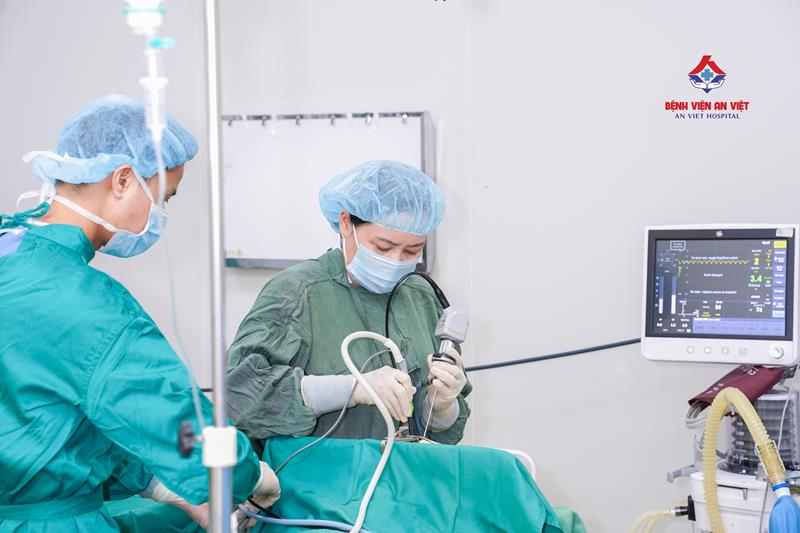
Associate Professor. PhD. MD Nguyen Thi Hoai An surgery on patient
In the past, scraping the VA with an electric knife that burns at high temperature often causes damage and prolongs the healing time. Therefore, many people often worry about refusing curettage of VA, leading to aggravation of the disease and complications for the upper respiratory tract.
However, now the pain and anxiety of VA curettage has been overcome by An Viet Hospital doctor thanks to the application of Plasma technology in the treatment process.
The outstanding advantage of the Plasma scalpel is that it has the ability to stop bleeding and does not cause pain to the patient. More and more people choose this method every time there is a need to cure VA. Because of the outstanding advantages of Plasma technology, it has great value and develops strongly all over the world.
Plasma technology is the use of radio waves to make medical devices. This device has strong soldering properties and very good hemostasis. Applying plasma technology with low temperature can stop bleeding very well, so the patient does not bleed during the procedure.
The second advantage of the Plasma knife is that it works in very low temperatures, only from about 70-100 degrees Celsius. When we leave it at low temperatures, local damage and damage to surrounding tissues are minimal. Therefore, after curettage of the VA, the patient will have less pain and heal the wound much faster. Hemostasis is also good. That’s why most patients ask to use Plasma technology.
At the Department of Otolaryngology of An Viet Hospital, thousands of patients have chosen the Plasma method for surgery. Therefore, the cost may also be slightly higher than with previous traditional technologies.
The Ear, Nose Throat Specialist of An Viet Hospital has examined and operated on VA curettage for thousands of patients. Directly in charge of the Department of Otolaryngology is Associate Professor. PhD. MD Nguyen Thi Hoai An.
– Associate Professor, Doctor of Otolaryngology
– Former Head of Children’s Otolaryngology Department, National Hospital of Otolaryngology
– Resident Doctor specializing in Ear, Nose and Throat
– Doctor who trained in the French Republic in Ear, Nose and Throat
– 30 years working at the Central Ear, Nose and Throat Hospital
At An Viet General Hospital, before surgery, the patient will be consulted and informed by the doctor about the cost. All are listed publicly and clearly for patients’ peace of mind.
An Viet currently owns a system of modern and synchronous equipment and machinery from advanced countries in the world such as the US, Japan, Germany, etc., ensuring the best service for the needs of comprehensive health care, depth. Therefore, customers can rest assured when booking an appointment here.
—————————————–
AN VIET GENERAL HOSPITAL
Address: 1E Truong Chinh, Thanh Xuan, Hanoi
Hotline: 1900 28 38 – 0965 98 37 73
Website: www.benhvienanviet.com
Fanpage: https://www.facebook.com/benhvienanviet
Download An Viet Hospital APP to “Look up results – Book an appointment – Video Call with a doctor” and more: https://onelink.to/pjmasd

